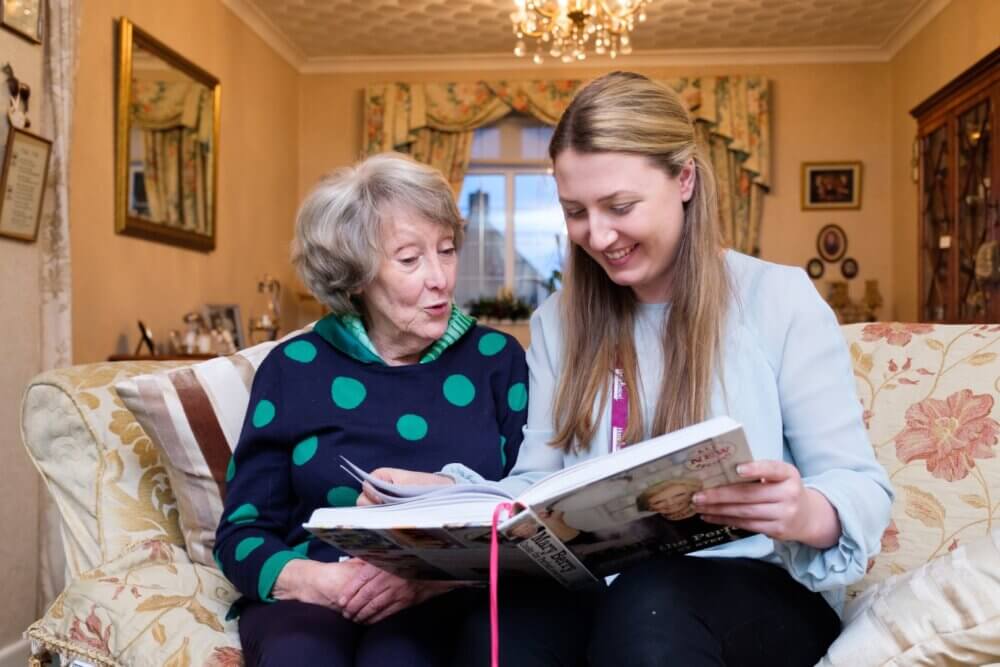What’s the Difference Between Dementia and Alzheimer’s?
Discover the difference between dementia and Alzheimer’s, and learn how Home Instead Ruislip & Harrow provides compassionate, specialised care for your loved ones.

When a loved one begins to experience memory loss, confusion, or personality changes, it’s natural to feel concerned. Could it be dementia or Alzheimer’s? What are the differences, and how can you find the right support in Ruislip & Harrow? Understanding these conditions is key to making informed care decisions for your family.

Dementia: More Than Just Memory Loss
Dementia is an umbrella term for a range of symptoms affecting cognitive function, including memory, reasoning, and communication. It’s not a specific disease but a group of symptoms that can be caused by various conditions such as Alzheimer’s, vascular dementia, or Lewy body dementia. Often, people associate dementia with forgetfulness, but it encompasses much more than that. Individuals may also struggle with daily tasks, lose track of time, and experience mood changes.

Alzheimer's: A Specific Cause of Dementia
Alzheimer’s disease is the most common cause of dementia, accounting for about 60-80% of cases. This progressive brain disorder leads to a decline in memory, thinking, and reasoning skills. It’s not just about losing one’s memory — it also impacts the ability to perform simple tasks and make decisions. People with Alzheimer’s may forget familiar faces, repeat questions, or get confused about where they are.

How Home Instead Ruislip & Harrow Can Help
Caring for someone with dementia or Alzheimer’s requires patience, understanding, and specialised support. At Home Instead Ruislip & Harrow, our care professionals are trained to provide compassionate, person-centred care. Whether it’s helping with daily routines, offering companionship, or ensuring safety at home, our team is here to make life easier for both you and your loved one.
Types of Support We Offer:
- Personal Care: Assistance with dressing, bathing, and grooming.
- Companionship: Reducing feelings of isolation through regular social interaction.
- Home Help & Housekeeping: Supporting with household tasks to maintain a safe and clean environment.
- Dementia Care: Tailored care plans that adapt to the changing needs of those with dementia or Alzheimer’s.

Understanding Care Options
Choosing the right care can feel overwhelming, especially when it comes to dementia. At Home Instead Ruislip & Harrow, we offer flexible care options designed to meet your family’s needs, from hourly visits to 24/7 care. Our services are designed to help your loved one stay comfortable at home while receiving the support they need.
If you’re concerned about a loved one showing signs of dementia or Alzheimer’s, we’re here to help guide you through the options available. Get in touch with us today to learn how we can support your family.
